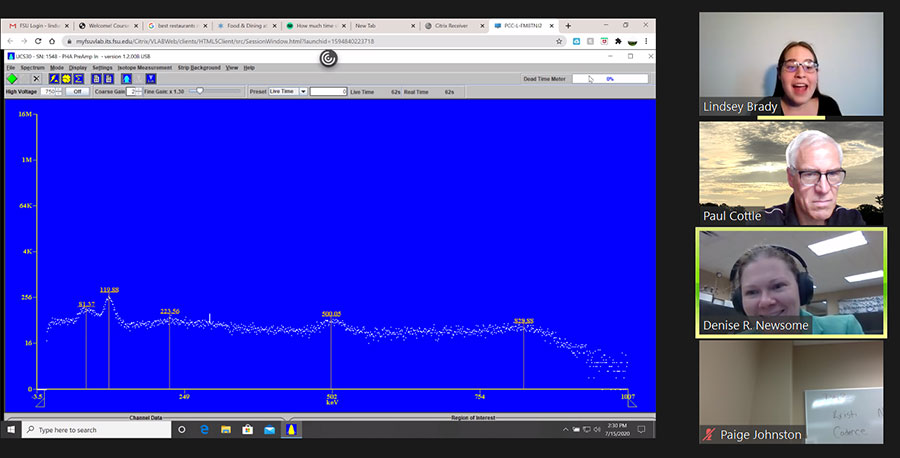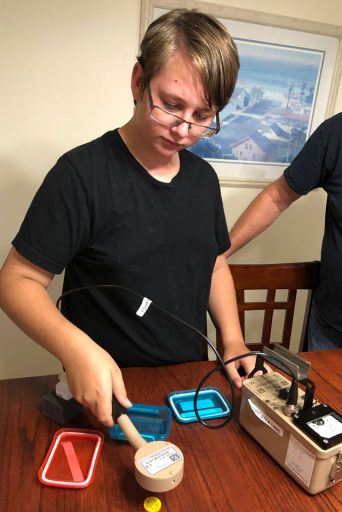
Florida State University Physics Professor Paul Cottle is a devoted advocate of the need for physics education in K-12 schools.
That's why he's been teaming up with science teachers over the past three summers to organize the Nuclear Medicine and Science Camp (NMSC) for middle and high school students from Panhandle counties.
But how do you host a four-day, hands-on physics camp amid a pandemic? A little creative thinking, and of course, technology.
"Every student deserves a chance to pursue a career in science or engineering if she or he chooses to do so," Cottle said. "Unfortunately, the pandemic is going to make it more difficult for many students to learn about and prepare for those careers. We decided to do the best we could to adapt the successful in-person nuclear camp we offered the last two years to an online format so that we could extend a lifeline to students who might otherwise lose the opportunity to pursue science or engineering careers because of COVID."

Nineteen students participated in this year's camp, which took place virtually July 13-16. Hosted by FSU Panama City, it was sponsored by the Center for Excellence in Nuclear Training and University-Based Research (CENTAUR), which is funded by the National Nuclear Security Administration, for the third consecutive year.
Denise Newsome, who teaches chemistry, physics and precalculus at the Deane Bozeman School in Bay County, and her tech-savvy colleague Paige Johnston, who teaches science at Bozeman, collaborated with Cottle and FSU-PC STEM Institute Director Ginger Littleton to pull off the feat.
While online, the instructors were still able deliver hands-on activities because of equipment boxes distributed to campers' families on the first morning of camp. The kits - each worth about $1,000 - included radiation monitors, radioactive sources and gamma-ray absorber kits for students to use in various at-home activities.
FSU Panama City IT staff were able to mount six gamma-ray spectroscopy stations on the internet using FSU's Virtual Lab, giving campers the opportunity to "fingerprint" different radioactive sources while controlling those stations from their laptops at home.
"Dr. Cottle loves to try to do new things and get kids excited about science," Johnston said. "I think this experience will open many doors for other opportunities for our students to engage in high-level STEM education across different means and situations. It's a great way to continue expanding the students' knowledge of science outside of the typical classroom environment."
The camp also included virtual tours of nuclear facilities at Panama City's Gulf Coast Regional Medical Center and Los Alamos National Laboratory.
"This experience has been proof, to me, at least, that if you give strong K-12 teachers a reasonable level of resources they can do amazing things," Cottle said.






